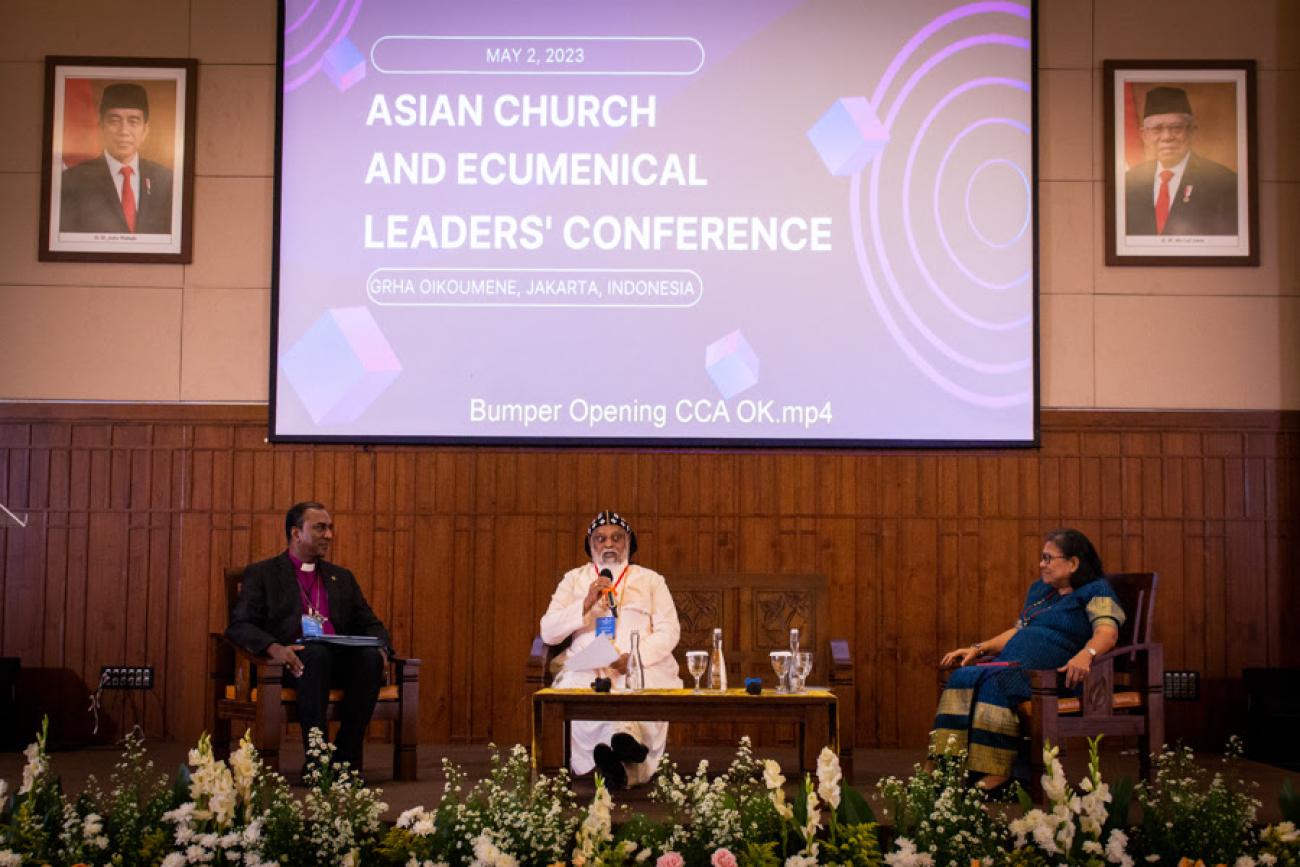ACELC urges Asian churches to pursue models of integrity leadership

Panel session on ‘Integrity Leadership: Towards Mutual Accountability and Transparency’ during ACELC at PGI Headquarters; from left to right: Bishop Steven Lawrence (Malaysia), His Grace Dr Youhanon Mar Demetrios (India), and Rev. Dr Henriette Hutabarat Lebang (Indonesia)
Jakarta, Indonesia: A special panel session on ‘Integrity Leadership: Towards Mutual Accountability and Transparency’ saw presentations from two senior Asian church and ecumenical leaders, Rev. Dr Henriette Hutabarat Lebang from Indonesia and Bishop Steven Lawrence from Malaysia, who called upon one hundred Asian church and ecumenical leaders to pursue models of integrity leadership that were marked by humility, accountability, transparency, and integrity.
The panel session was held as part of the Christian Conference of Asia’s (CCA) Asian Church and Ecumenical Leaders’ Conference (ACELC) and took place at the headquarters of the Persekutuan Gereja-gereja di Indonesia (PGI), or the Communion of Churches in Indonesia (CCI).
Rev. Dr Henriette Hutabarat Lebang, the Asia President of the World Council of Churches, illustrated the facets of Christian integrity leadership, at the heart of which are servanthood, sacrifice, and selflessness.
“We believe that our leadership should be inspired by God; not by power, privilege, or position,” said Rev. Dr Lebang, who also served as the General Secretary of the CCA from 2010 to 2015.
“A leader of integrity is trustworthy, reliable, and capable of making wise judgements. They earn trust through their competence and ethical behaviour…despite challenges of politics, moral scandals, and other issues that polarise the church. Such leaders inspire accountability through their ability to accept responsibility,” she shared.
Rev. Dr Lebang further proposed the model of ‘transcendental leadership’. While transactional leadership was profit-oriented and transformational leadership was people-oriented, transcendental leadership was planet-oriented and fulfilled the planetary call for the good governance of all creation.
Bishop Steven Lawrence, from the Evangelical Lutheran Church in Malaysia, presented a fresh reading of Mark 10:35–45, where, in the context of James’ and John’s unhealthy request for leadership and power, Jesus reveals his expectations of leadership and subverts the dominant associations of leadership with power.
“God revealed Himself to us in opposites—His glory was in the cross and His power was in weakness. God measures success not by authority or prestige, but by humble servanthood and service. God does not approve of self-centredness, self-indulgence, and self-seeking behaviour in the leaders He appoints; greatness in God’s kingdom comes through servanthood, suffering, and self-denial,” said the Malaysian bishop.
Karmila Jusup from the Mission-21 Office in Indonesia, Rev. John Gilmore from the National Council of Churches in Australia, and Rev. Mery Kolimon from the Protestant Evangelical Church in Timor shared practical challenges or barriers to implementing integrity leadership from the floor.
His Grace Dr Youhanon Mar Demetrios of the Malankara Orthodox Syrian Church moderated the session.











